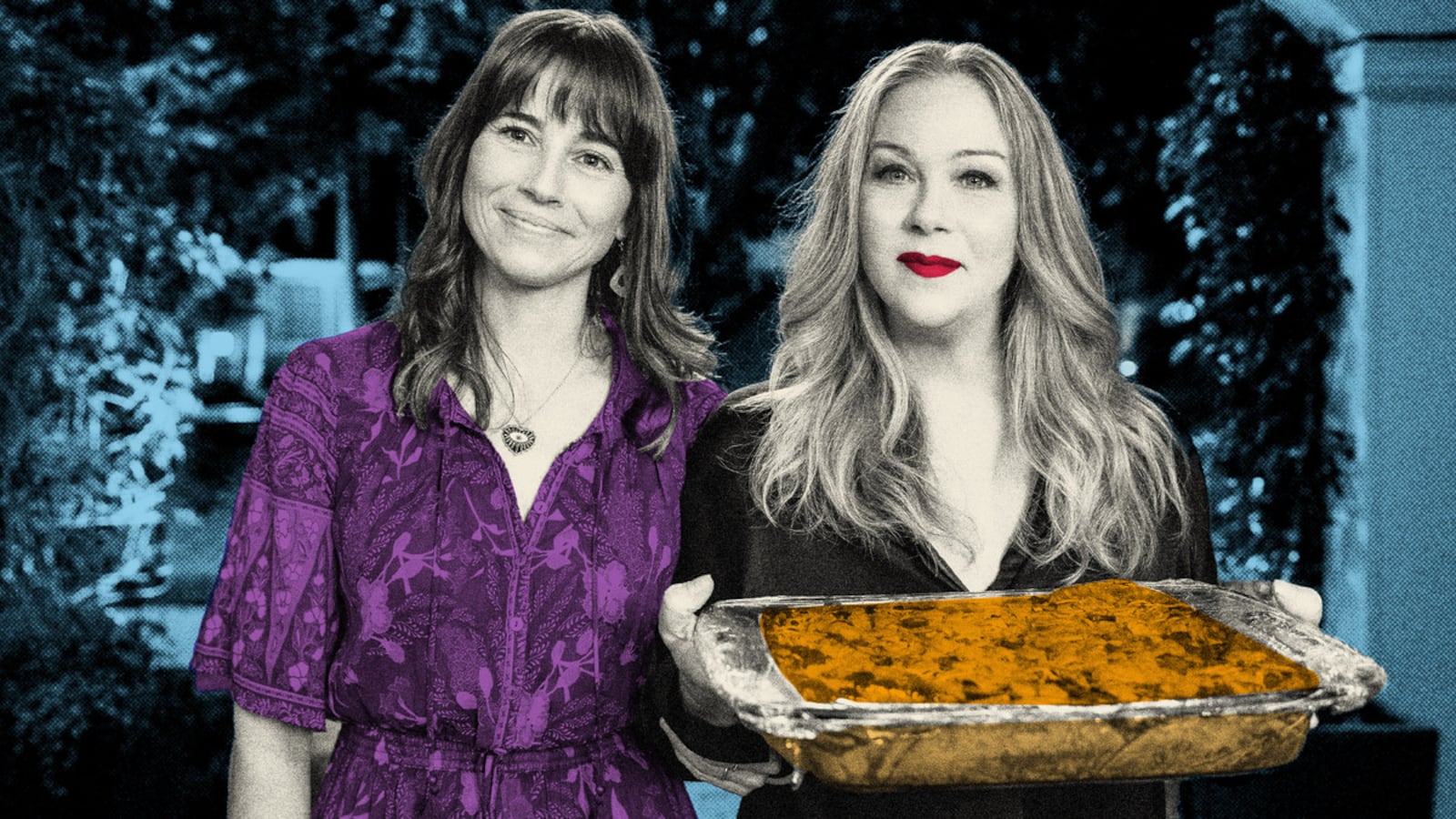Partway through the third and final season of Dead to Me, Christina Applegate’s spiky anti-heroine, Jen Harding, shares a piece of evergreen advice: “Sometimes, you just have to accept the fact that this is your life,” she says, “and you need to fucking deal—no matter how much you wish things were very, very, very different.”
The sentiment isn’t novel, but the conviction in Applegate’s delivery is palpable. Much like the show that contains it, the line is sincere and deeply felt, even if Jen’s circumstances are anything but “relatable.”
(Warning: Major spoilers ahead for Dead to Me Season 3.)
Here are just a few facts of life Jen faces: She’s still not entirely over her bitter rage at losing her husband, Ted, in a hit-and-run accident. Her best friend, Judy (Linda Cardellini), whom she met in grief group, is actually the one who hit him. Jen murdered Judy’s abusive ex, Steve (James Marsden), and she’s kissed his secret identical twin, Ben (whom we met in Season 2).

Oh—and in Dead to Me Season 3, the series’ final chapter premiering Thursday, Jen discovers that Judy has stage four cervical cancer, before subsequently discovering she’s also pregnant at age 47.
Dead to Me thrives on contradictions: As devastating as Jen and Judy’s shared traumas might be, their improbably blood-soaked lives unfold in relentlessly sunny Southern California. The darker these star-crossed besties’ secrets get, the further the series leans into its finely honed, self-aware soapiness. (See: James Marsden showing up in Season 2 as his own identical twin.)
There’s a surreality to soap operas—a sense of dramatic artifice that Dead to Me has been able to place in harmony with the sense of disbelief that can accompany loss. That tonal flourish imparts humor and humanity into what could have been a relentlessly dour “grief comedy.” But it’s the easy, ineffable chemistry between Cardellini and Applegate that’s made this series so relentlessly watchable from the start.
In real life, Applegate has said she wonders if Dead to Me might be her last big on-screen role. During the filming of this season, she was diagnosed with multiple sclerosis—a chronic autoimmune disease that impacts communication between one’s brain and body.
The production shut down for five months, and Applegate told the New York Times that she needed that time “to process my loss of my life, my loss of that part of me.” (As the Times notes, Applegate has further projects in development—including Sony’s animated Married ... With Children revival and other ideas she’d like to produce on her own. “I just need to get them executed.”)
Once everyone returned to production, the Times reports that Cardellini was one of Applegate’s strongest advocates on set; the two bonded almost instantly when they first met, the Times added, and Applegate knew instantly that they’d have one another’s backs.
As naive as it might be to comment upon how well two performers jibe on screen, Applegate and Cardellini really do always seem to be having a great time. Their humor is effortless, their banter is easy, and their patter feels like it must be too real to fake. Without that authenticity, it’s hard to imagine viewers would buy a friendship as intense as Jen and Judy’s. The radical sense of acceptance both women are able to develop within their relationship is beyond powerful; it gives them meaning and belonging—a sense of connection that ultimately runs deeper than the isolating pain of their grief.

Throughout the series, Jen teeters on a razor’s edge between acceptance and rage. Judy, on the other hand, leans the opposite direction; the pinnacle of self-abandonment, she would sacrifice herself at any time to save someone else, but accepts whatever misfortune might come her way with unquestioning resignation. This season’s twists, just like those before, constantly test those impulses.
Speaking with the Times, Applegate said Dead to Me Season 3 would be “the first time anyone’s going to see me the way I am.” Applegate’s condition is actually largely invisible this season, thanks to some clever production tricks. The show’s final season feels like a natural continuation of what it’s always been—a subtly strange but gentle comedy that seems interested, above all, in forgiveness.
Dead to Me’s wisdom lies in its recognition that to truly love someone, even a friend, you have to be able to show yourself the same care. As all of these extremely guilty characters share their sordid secrets, they foster acceptance—both for themselves and for one another. By learning how to show up for one another, it seems Jen and Judy also figured out how to show up for themselves.







